|
Books Should Be Free Loyal Books Free Public Domain Audiobooks & eBook Downloads |
|
|
Books Should Be Free Loyal Books Free Public Domain Audiobooks & eBook Downloads |
|
Fiction |
|---|
|
Book type:
Sort by:
View by:
|
By: Edna Ferber (1885-1968) | |
|---|---|
 Dawn O'Hara, The Girl Who Laughed
Dawn O'Hara, The Girl Who Laughed
Dawn O’Hara, the Girl Who Laughed was Edna Ferber’s first novel. Dawn, a newspaperwoman working in New York, finds herself back home in Michigan on doctor’s orders. Years of living in boarding-houses and working to pay for the care of her brilliant but mentally ill husband, Peter Orme, have taken their toll. At twenty-eight, Dawn feels like an old woman with no future. But, the loving care of her sister Norah and her family along with the attentions of the handsome German doctor, Ernst Von Gerhard, slowly bring Dawn back to life... | |
 Buttered Side Down
Buttered Side Down
"And so," the story writers used to say, "they lived happily ever after." Um-m-m—maybe. After the glamour had worn off, and the glass slippers were worn out, did the Prince never find Cinderella's manner redolent of the kitchen hearth; and was it never necessary that he remind her to be more careful of her finger-nails and grammar? After Puss in Boots had won wealth and a wife for his young master did not that gentleman often fume with chagrin because the neighbors, perhaps, refused to call on the lady of the former poor miller's son? It is a great risk to take with one's book-children... | |
 Personality Plus
Personality Plus
Personality Plus is an early novel by American author Edna Ferber. Originally published in 1914, Personality Plus is the second of three volumes chronicling the travels and events in the life of Emma McChesney. Ferber achieved her first successes with a series of stories centering around this character, a stylish and intelligent divorced mother who rises rapidly in business. ( | |
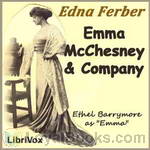 Emma McChesney and Company
Emma McChesney and Company
This is the final volume in the trilogy following the smart, stylish, divorced and independent businesswoman Emma McChesney in her career from stenographer, then drummer (traveling salesman) to owner of her own company. (The first was Roast Beef, Medium and the second Personality Plus). Edna Ferber first gained success with these stories and later went on to write Show Boat, Giant and other well known books. First published in 1915, Emma's son, Jock, has moved to Chicago with his new wife. Emma decides to sell in South America and proves she has not lost her magic touch... | |
By: Edwin F. Benson (1867-1940) | |
|---|---|
 Miss Mapp
Miss Mapp
E. F. Benson’s Mapp and Lucia series, consists of six novels and three short stories. The novels are: Queen Lucia, Lucia in London, Miss Mapp (including the short story The Male Impersonator), Mapp and Lucia, Lucia’s Progress (published as The Worshipful Lucia in the U.S.) and Trouble for Lucia. Most of these works are set in the fictional village of “Tilling”, which is based on the village of Rye, Sussex, England. “Mallards”, the house with the garden room inhabited by Miss Mapp, and later by Lucia, is based on Lamb House, Benson’s own home in Rye. Earlier, the house was the Sussex home of writer Henry James. | |
By: George Sand (1804-1876) | |
|---|---|
 The Devil's Pool
The Devil's Pool
George Sand (the pen name of Amantine-Lucile-Aurore Dupin 1804-1876) is famous for flaunting the conventions of behavour expected of women of her standing in France at the time and for her numerous romantic liaisons including her long standing affair with Frédéric Chopin. The Devil’s Pool (published in 1846 as La Mare au Diable) is one of several short pastoral novels drawn from her childhood experiences in the rural French region of Berri. It tells the story of a young widower, Germain, who, at the insistence of his father-in-law, sets out to remarry so that he will have someone to help raise his three young children. Summary written by the reader. | |
By: Jacob & Wilhelm Grimm (1785-1863; 1786-1859) | |
|---|---|
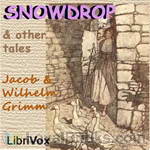 Snowdrop and Other Tales
Snowdrop and Other Tales
Many of these tales were published in English in 1909, the Brothers Grimm tales in this book were published separately in 1920 with illustrations by Arthur Rackham (1867-1939). | |
By: Anna Maynard Barbour (d. 1941) | |
|---|---|
 That Mainwaring Affair
That Mainwaring Affair
As wealthy financier, Hugh Mainwaring dictates his last will and testament to his private secretary, it would be impossible for him to imagine the shocking chain of events that he is about to set into motion. This best-selling mystery novel was first published in 1901 and remains an entertaining mix of detective work, courtroom drama and family intrigue. | |
 At the Time Appointed
At the Time Appointed
"Those who remember that excellent detective story, That Mainwaring Affair will expect to find plenty of mystery and exciting incidents in A. Maynard Barbour's latest novel, called At the Time Appointed, and they will realize their expectations.The author has a certain way of forecasting events and making people utter prophetic words, all bound to find their fulfillment somewhere before the last chapter is ended, that is eminently characteristic of one who delights in the knitting and raveling of the intricate plots which are a prime necessity in a detective story... | |
By: Ethel Sybil Turner | |
|---|---|
 Seven Little Australians
Seven Little Australians
This is the story of seven incorrigible children living near Sydney in the 1880’s with their military-man father, and a stepmother who is scarcely older than the oldest child of the family. A favourite amongst generations of children for over a century, this story tells of the cheeky exploits of Meg, Pip, Judy, Bunty, Nell, Baby, and The General (who is the real baby of the family), as well as providing a fascinating insight into Australian family life in a bygone era. | |
By: Henry Fielding (1707-1754) | |
|---|---|
 The History of Tom Jones, A Foundling
The History of Tom Jones, A Foundling
Tom Jones is considered one of the first prose works describable as a novel. The novel is divided into 18 smaller books. Tom Jones is a foundling discovered on the property of a very kind, wealthy landowner, Squire Allworthy. Tom grows into a vigorous and lusty, yet honest and kind-hearted, youth. He develops affection for his neighbor’s daughter, Sophia Western. On one hand, their love reflects the romantic comedy genre popular in 18th-century Britain. However, Tom’s status as a bastard causes Sophia’s father and Allworthy to oppose their love; this criticism of class friction in society acted as a biting social commentary... | |
 Joseph Andrews
Joseph Andrews
Joseph Andrews ... was the first published full-length novel of the English author and magistrate Henry Fielding, and indeed among the first novels in the English language. Published in 1742 and defined by Fielding as a ‘comic romance,’ it is the story of a good-natured footman's adventures on the road home from London with his friend and mentor, the absent-minded parson Abraham Adams. | |
 Journey from this World to the Next
Journey from this World to the Next
The narrator dies in the first sentence. Through relating his travels in the afterlife, Henry Fielding, author of Tom Jones and Joseph Andrews, gently satirizes life here on earth. | |
 The History of the Life of the Late Mr. Jonathan Wild the Great
The History of the Life of the Late Mr. Jonathan Wild the Great
This novel is sometimes thought of as [Fielding's] first because he almost certainly began composing it before he wrote Shamela and Joseph Andrews. It is a satire of Walpole that draws a parallel between Walpole and Jonathan Wild, the infamous gang leader and highwayman. He implicitly compares the Whig party in Parliament with a gang of thieves being run by Walpole, whose constant desire to be a “Great Man” (a common epithet for Walpole) should culminate only in the antithesis of greatness: being hanged. | |
 An Apology for the Life of Mrs. Shamela Andrews
An Apology for the Life of Mrs. Shamela Andrews
An Apology for the Life of Mrs. Shamela Andrews, or simply Shamela, as it is more commonly known, is a satirical novel written by Henry Fielding and first published in April 1741 under the name of Mr. Conny Keyber. Fielding never owned to writing the work, but it is widely considered to be his. It is a direct attack on the then-popular novel Pamela (November 1740) by Fielding's contemporary and rival Samuel Richardson and is composed, like Pamela, in epistolary form. Shamela is written as a shocking revelation of the true events which took place in the life of Pamela Andrews, the main heroine of Pamela... | |
By: Elizabeth Prentiss (1818-1878) | |
|---|---|
 Aunt Jane's Hero
Aunt Jane's Hero
Aunt Jane is a good and loving woman, important to everyone except herself, always willing to give good advice. Her "hero", Horace, is far different: in the beginning of the story, he is a good but a little unthoughtful youth. But at the end, his unthoughtfulness is replaced by his love to god. Beside aunt Jane and her "hero", there is quite a large cast of other unforgettable characters who show us a lot of important things. (Summary by Stav Nisser.) | |
By: Thomas de Quincey (1785-1859) | |
|---|---|
 Miscellaneous Essays
Miscellaneous Essays
The Hunter Thompson of the 19th Century, de Quincey is best known for his Confessions of an English Opium Eater (an activity shared with his hero, Samuel Coleridge, much to Wordsworth’s dismay). However, de Quincey’s literary genius is best captured in his essays, and, according to Wikipedia: His immediate influence extended to Edgar Allan Poe, Fitz Hugh Ludlow and Charles Baudelaire, but even major 20th century writers such as Jorge Luis Borges admired and claimed to be partly influenced by his work. | |
By: W. W. Jacobs (1863-1943) | |
|---|---|
 The Monkey's Paw
The Monkey's Paw
An eerie supernatural story, The Monkey's Paw follows the White family as they come to realize that nothing in life comes without a price or at the simple push of a button. First published in 1902, the short story powerfully suggests that one should not interfere with the course of nature, as cheating fate can result in unforeseen consequences that leave one with more than they bargained for. Set in England, the tale opens on a dark and stormy night inside Laburnam Villa, home to Mr. and Mrs... | |
By: Selma Lagerlöf (1858-1940) | |
|---|---|
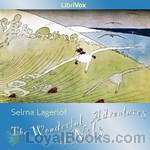 The Wonderful Adventures of Nils
The Wonderful Adventures of Nils
Selma Lagerlöf was born in Vaermland, Sweden, in 1858 and enjoyed a long and very successful career as a writer, receiving the Nobel-Price in Literature in 1909. She died in Vaermland in 1940. The Wonderful Adventures of Nils (Orig. Nils Holgerssons underbara resa genom Sverige) is a famous work of fiction by Selma Lagerlöf, published in two parts in 1906 and 1907. The background for publication was a commission from the National Teachers Association in 1902 to write a geography reader for the public schools... | |
 Invisible Links
Invisible Links
Selma Lagerlöf was born in Vaermland, Sweden, in 1858 and enjoyed a long and very successful career as a writer, receiving the Nobel-Price in Literature in 1909. She died in Vaermland in 1940. Invisible Links (Osynliga länkar) is a collection of short stories with an underlying theme about the links that influence and guide people’s actions and lives. It was first published in 1894 and the English translation in 1895. The stories are often set in Lagerlöf’s Vaermland, but they also depict legends and history of Sweden, and some have connections to other works by Lagerlöf. Invisible Links is a good introduction to the writings of Selma Lagerlöf. | |
 The Story of Gösta Berling
The Story of Gösta Berling
The Story of Gösta Berling" was published in Sweden in 1894 and immediately brought its author into prominence.The tales are founded on actual occurrences and depict the life in the province of Värmland at the beginning of the 19th Century century. Värmland is a lonely tract in the southern part of Sweden, and has retained many of its old customs, while mining is the principal industry of its sparse population. It consists of great stretches of forest, sloping down to long, narrow lakes, connected by rivers.Miss Lagerlöf has grown up in the midst of the wild legends of her country, and, deeply imbued with their spirit, interprets them with a living force all her own. | |
 The Emperor of Portugallia
The Emperor of Portugallia
Selma Lagerlöf was born in Vaermland, Sweden, in 1858 and enjoyed a long and very successful career as a writer, receiving the Nobel-Price in Literature in 1909. She died in Vaermland in 1940. The Emperor of Portugallia was first Published 1914 in Sweden, and 1916 in English, translated by Velma Swanston Howard. The Story i set in Vaermland around 1860 or 1870. In the centre is Jan of Ruffluck Croft. He loves his daughter more than anything, but when she moves to Stockholm and never sends a word home about her doings, he sinks into a dream-world where she is a noble Empress of Portugallia... | |
By: Alexander Pope | |
|---|---|
 An Essay on Criticism
An Essay on Criticism
An Essay on Criticism was the first major poem written by the English writer Alexander Pope (1688-1744). However, despite the title, the poem is not as much an original analysis as it is a compilation of Pope’s various literary opinions. A reading of the poem makes it clear that he is addressing not so much the ingenuous reader as the intending writer. It is written in a type of rhyming verse called heroic couplets. | |
By: Sholem Aleichem (1859-1916) | |
|---|---|
 Jewish Children (Yudishe Kinder)
Jewish Children (Yudishe Kinder)
Although written from a child’s perspective, this is not a kids book but a series of funny, poignant, and sometimes disturbing stories about life in a late 19th-century Russian-Jewish village — the world of my grandparents. Sholem Rabinovich (1859-1916) was born in Pereiaslav, Ukraine and later immigrated to New York. His short stories about Tevye and his daughters were freely adapted into the musical FIDDLER ON THE ROOF. Rabinovich’s will contained the following injunction: “Let my name be recalled with laughter or not at all.” His translator, Hannah Berman, was Irish of Lithuanian descent.Some of these stories may be too intense for younger children. | |
By: William Morris (1834 — 1896) | |
|---|---|
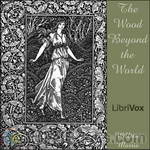 The Wood Beyond the World
The Wood Beyond the World
MANUAL OF SURGERY, OXFORD MEDICAL PUBLICATIONSBY ALEXIS THOMSON, F.R.C.S.Ed.PREFACE TO SIXTH EDITION Much has happened since this Manual was last revised, and many surgical lessons have been learned in the hard school of war. Some may yet have to be unlearned, and others have but little bearing on the problems presented to the civilian surgeon. Save in its broadest principles, the surgery of warfare is a thing apart from the general surgery of civil life, and the exhaustive literature now available on every aspect of it makes it unnecessary that it should receive detailed consideration in a manual for students... | |
 Völsungasaga
Völsungasaga
The 13th century Icelandic Völsungasaga is usually read by people studying the Poetic Edda or Wagner’s Ring – which obscures the fact it is a much better story than practically everything derived from it. A riddle-telling dragon, a broken sword, a hooded mysterious wanderer – cannibalism, incest, mutilation, and sensitive hearts. This is R-rated Tolkien – and the unashamedly archaic Magnússon-Morris translation is up for the adventure.Passages spoken in Old Norse are taken from the edition of Sophus Bugge, Berlin, 1891. | |
 News From Nowhere
News From Nowhere
News from Nowhere (1890) is a classic work combining utopian socialism and soft science fiction written by the artist, designer and socialist pioneer William Morris. In the book, the narrator, William Guest, falls asleep after returning from a meeting of the Socialist League and awakes to find himself in a future society based on common ownership and democratic control of the means of production. In this society there is no private property, no big cities, no authority, no monetary system, no divorce, no courts, no prisons, and no class systems... | |
 The Well at the World's End, Book 1: The Road unto Love
The Well at the World's End, Book 1: The Road unto Love
The Well at World's End is thought to be one of the first examples of an entirely fictional fantasy world, and has greatly influenced later fantasy writers such as C.S. Lewis and J.R.R. Tolkien. The book follows the travels of Ralph, a prince of a tiny country, as he disobeys his fathers wishes and runs away from home to adventure in the world, and seek out the fabled Well at World's End, said to grant eternal youth to those who drink from it. | |
 The House of the Wolfings
The House of the Wolfings
William Morris (1834-1896) was a writer, illustrator and medievalist from the Romantic period and associated with other renowned authors of the time such as Dante Rossetti. His fascination with ancient Germanic and Norse people dominated his writings, the first to be set in an entirely invented fantasy world and which helped to establish the fantasy genre. The House of Wolfings (1890), some argue, is a demonstration of Morris' socialism as the society described, though not an utopia, is clan-based, elects leaders and makes decisions in clan tribal meetings... | |
By: Grace Livingston Hill (1865-1947) | |
|---|---|
 The Best Man
The Best Man
Cyril Gordon, a young and handsome secret service agent is running from pursuers who desperately want the information he holds. He hides out from them in a church, and then finds himself married to a woman he’s never seen before. A sweet and sometimes, funny, romance, with several exciting chases. | |
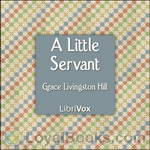 A Little Servant
A Little Servant
A short story of a little girl who is Jesus’ servant and how she won the heart of an unbelieving gardener. | |
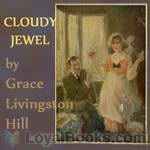 Cloudy Jewel
Cloudy Jewel
Julia Cloud, the oldest--and most responsible--child of her family, helped raise her four siblings due to their mother's long-time illness and father's death. After faithfully nursing two ill brothers (who died), she then cared for her invalid mother for many years. When Julia's mother passes on, her only surviving sibling Ellen fully expects--and nearly demands--that her spinster sister come live with her family. But to earn her keep, Julia must be their live-in housekeeper and babysitter for Ellen's four children. But Julia's college-age niece and nephew arrive unexpectedly from California and offer Aunt Cloudy Jewel a surprise opportunity she never expected in her wildest dreams. | |